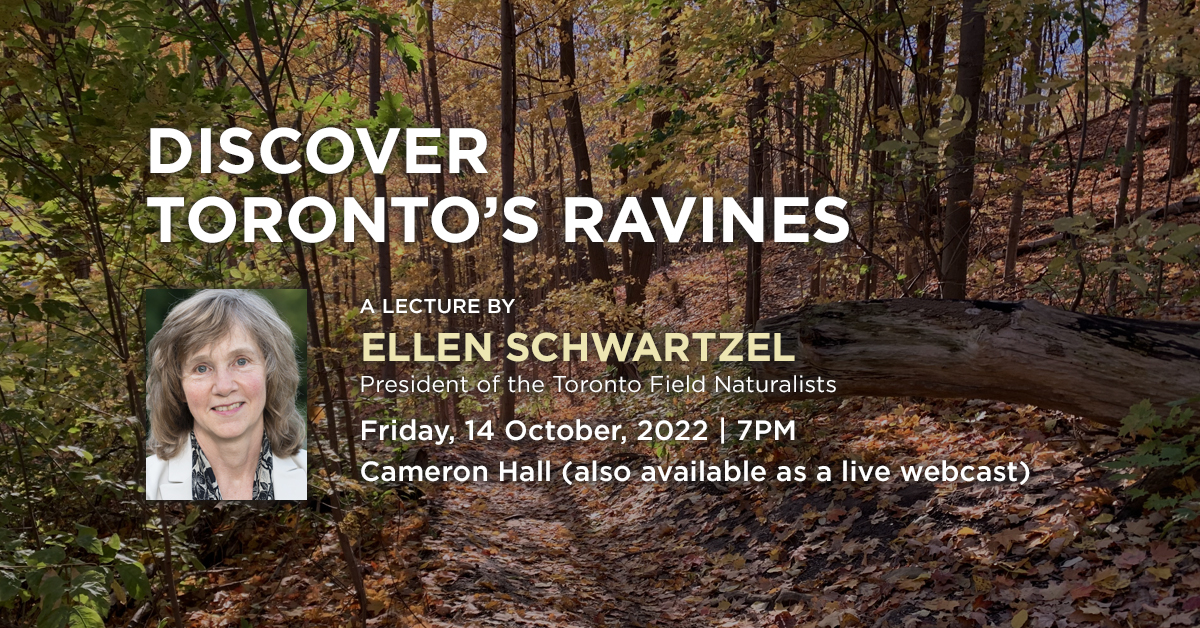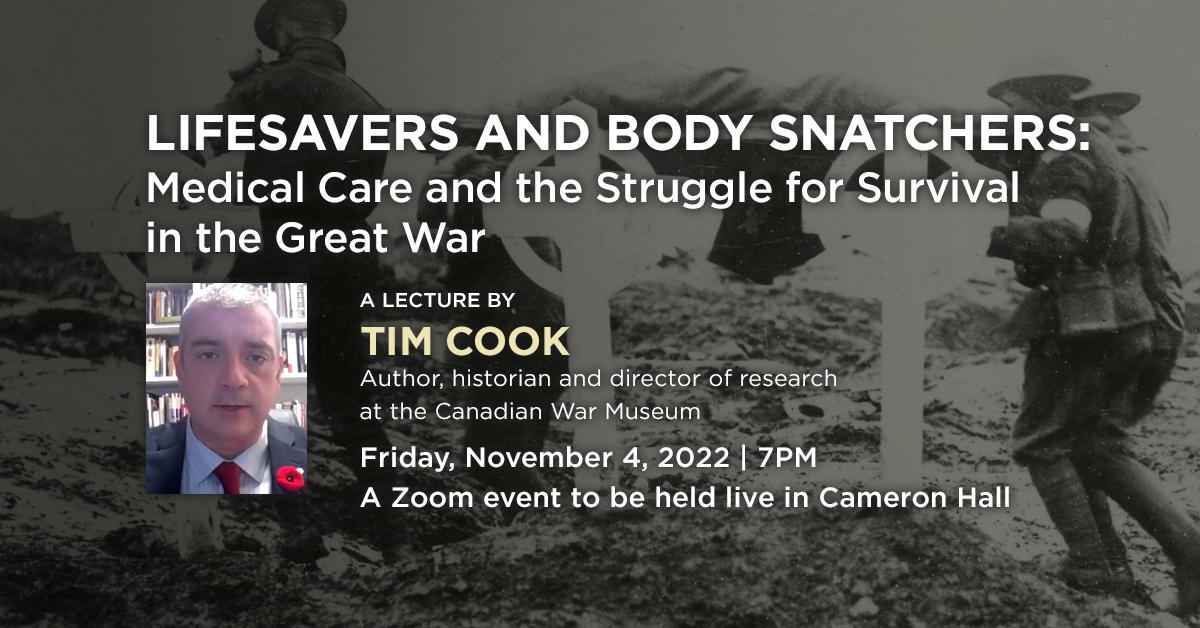
Toronto’s ravine landscapes are not just a sanctuary for wildlife, they also protect the city against flooding and allow us to enjoy nature at our doorsteps. In this lecture Ellen Schwartzel will describe how the ravines are changing over time, how they are responding to numerous pressures and how you can explore and help protect them.


